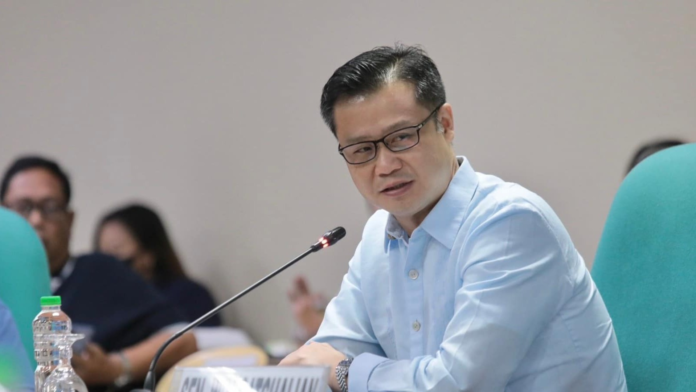A lawmaker has filed a measure seeking to penalize individuals who allow themselves to be used as money couriers or money mules to engage in fraudulent financial schemes, especially in social engineering schemes.
Under Senate Bill 2407 or the Anti-Financial Account Scamming Act filed on Aug. 15, Sen. Sherwin Gatchalian said his bill is aligned with the administration’s commitment to expand digital transactions and at the same time safeguard the public from scammers and abusive online lenders.
“We need to protect the integrity of the country’s financial system and ensure that financial accounts and their owners are protected and are not exploited or lured by cybercriminals or criminal syndicates into the commission of an unlawful or fraudulent activity,” he said.
Gatchalian also expressed alarm over the reports of Kaspersky Security Network 2022 Report showing the Philippines ranked 2nd among countries most attacked by web threats and the most preferred attack method which includes social engineering schemes.
He said the coronavirus disease 2019 (Covid-19) pandemic has highlighted the significance of cashless transactions and digital payments.
The senator said given the rapid growth and popularity of digital financial services, the rise of financial-related cyber crimes followed.
“Cybercriminals started taking advantage of technologies to transfer illicit or stolen funds across digital financial services, stealing vital information about (the) account holders and taking over their accounts, or enticing account holders with gifts and incentives with the goal of covertly committing financial crimes,” he said.
As such, Gatchalian noted the pressing need to enact a measure that imposes penalties on individuals who willingly become conduits for illicit transactions, those who engage in manipulative social engineering tactics and other deceitful schemes that exploit financial accounts.
This encompasses actions such as account takeover, recruiting or enlisting others to commit these acts and perpetration of these acts on a significant scale comparable to economic sabotage that jeopardizes the security of Filipinos’ financial accounts and the integrity of the country’s financial system.
“For the past three years, the unsuspecting public lost millions of their hard-earned money to these cybercriminals,” Gatchalian said, citing as an example the “Mark Nagoyo” scam, wherein more than 700 BDO Unibank customers’ accounts were hacked in late 2021; the unauthorized bank transfers that targeted government teachers with LandBank accounts in January last year, wherein the victims lost between PHP26,000 to PHP121,000; and the massive phishing incident involving GCash users in May this year.
“Operations of cybercriminals grew on a large scale, taking advantage of the unemployed, those who are looking for easy money, those who are unaware, and those who are willing to help others, and thriving in jurisdictions with very weak enforcements and penalties like the Philippines,” he noted. (PNA)
Photo credit: Facebook/senateph


